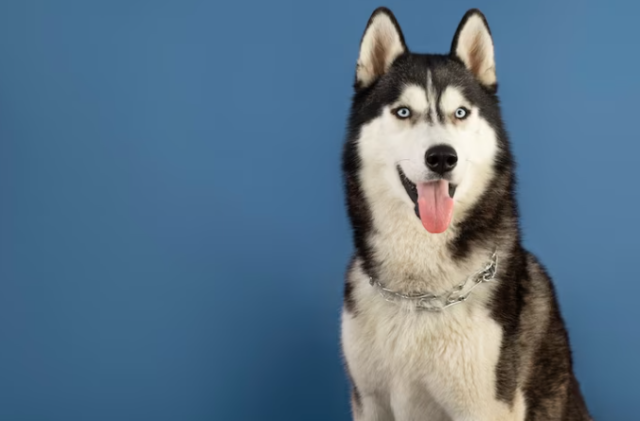Introduction
Crusty white dog breed possess an enigmatic charm that sets them apart. These canines captivate with their striking appearance and distinctive qualities. In this article, we delve into the fascinating world of crusty white dog breeds, exploring their origin, temperament, care requirements, and more. Join us as we unravel the allure of these remarkable canines.
The Origins of Crusty White Dog Breeds
The roots of crusty white dog breeds trace back to diverse regions across the globe. From the spirited West Highland White Terrier to the elegant Bichon Frise, these dogs have fascinating histories. Their origins often tie to specific purposes, such as hunting, herding, or companionship. Discover the unique tales behind their beginnings.
Distinctive Qualities and Appearance
Crusty white dog breeds exhibit a range of distinctive qualities. Their fur, typically white and textured, adds to their allure. These canines boast an array of coat types, including curly, wavy, or wire-haired. Learn about their size, body structure, and other defining features that contribute to their charm.
Temperament and Personality Traits
Understanding the temperament of crusty white dog breeds is crucial for potential owners. These canines often possess unique personality traits, such as intelligence, loyalty, and playfulness. Discover their tendencies towards socialization, trainability, and compatibility with families and other pets.
Care and Grooming Tips
Proper care and grooming are essential to keep crusty white dog breeds healthy and looking their best. From coat maintenance and bathing routines to dental care and exercise requirements, explore practical tips to ensure their well-being. We also provide insights into common health concerns and preventive measures.

Popularity and Adoption Considerations
Crusty white dog breeds have gained popularity worldwide due to their captivating appearance and endearing qualities. Discover why these dogs have become sought after as both family pets and show dogs. If you’re considering adopting a crusty white dog breed, we offer valuable insights into responsible adoption and finding reputable breeders.
Comparison Table: Crusty White Dog Breeds at a Glance
| Breed | Size | Temperament | Trainability | Exercise Needs |
|---|---|---|---|---|
| West Highland Terrier | Small | Alert, Friendly | Highly trainable | Moderate |
| Bichon Frise | Small | Affectionate | Intelligent | Moderate |
| Samoyed | Large | Gentle, Happy | Highly trainable | High |
| Maltese | Toy/Small | Playful, Bold | Moderately | Moderate |
Crusty White Dog Breeds in Popular Culture
These remarkable canines have also made their mark in popular culture. From appearing in movies and TV shows to being featured in literature and advertisements, crusty white dog breeds have become iconic symbols. Explore their contributions to the entertainment industry and their enduring presence in our collective imagination.
Conclusion
Crusty white dog breeds possess an irresistible charm that leaves a lasting impression. Their striking appearance, distinctive qualities, and endearing personalities make them a favorite among dog enthusiasts. Whether they accompany you on adventurous hikes or snuggle up with you on a cozy evening, these canines bring joy and companionship to their owners. Remember to provide the love and care they deserve, and they will reward you with unwavering loyalty and affection.
FAQs
Q1: Are crusty white dog breeds hypoallergenic?
Yes, many crusty white dog breeds are considered hypoallergenic. Their minimal shedding and low dander production make them suitable for individuals with allergies.
Q2: How often should I groom my crusty white dog?
The grooming frequency depends on the specific breed and coat type. Generally, crusty white dogs require regular brushing to prevent matting and occasional professional grooming to maintain their coat's condition.
Q3: Can crusty white dog breeds adapt to apartment living?
Yes, crusty white dog breeds can adapt well to apartment living if given sufficient exercise and mental stimulation. However, it's essential to provide them with regular outdoor activities to meet their exercise needs.
Q4: Are crusty white dog breeds good with children?
Many crusty white dog breeds have a friendly and gentle nature, making them suitable companions for children. However, proper socialization and supervision are necessary to ensure positive interactions.
Q5: Do crusty white dog breeds require a lot of training?
Crusty white dog breeds are generally intelligent and eager to please, making them trainable. Consistent and positive reinforcement methods, along with early socialization, can help them become well-behaved and obedient pets.
Read also
- Stop Your Dog’s Raw Skin Issues with Effective Chewing Treatment
- Discover the Versatile Mountain Cur Dog Breed | All You Need to Know
- Effective Strategies to Stop a Dog from Jumping Up on Strangers
- Dog Chewing Nails: Causes, Prevention, and Effective Solutions
- Best Dog Food for Golden Retrievers: A Complete Guide
- Attention Dog Lovers: Japanese Breeds Unleashed!
- Stop Dog Chewing Paws Now! Effective Home Remedy for Happy Pups
- Puppy Barking: Understanding and Managing Your Furry Friend’s Vocalizations
- Supplements for Dog Allergies: Alleviating Itchy Woes
- Top 10 Must-Have Dog Camping Gear for Your Next Adventure
- Dog Food Storage Container 40 lbs: Keeping Your Pet’s Nutrition Fresh and Secure
- Nutritional Yeast for Dogs: A Comprehensive Guide
- Choosing the Best Dog Food for Your Husky Puppy: Ultimate Guide
- Swim with Confidence: Discover the Best Dog Life Jackets Today!
- Indestructible Dog Toys: Keep Your Pup Entertained for Hours
- Unveiling the Charms of Chug Dog Breed: A Perfect Blend of Cuteness and Companionship
- Silence the Noise: Discover the Power of Anti Barking Devices
- A Convenient Solution for Dog Food Storage Container 50 lbs of Kibble
- Best Dog Food for Pitbulls: Fueling Your Canine Athlete
- Find the Best Dog Food for Your German Shepherd



